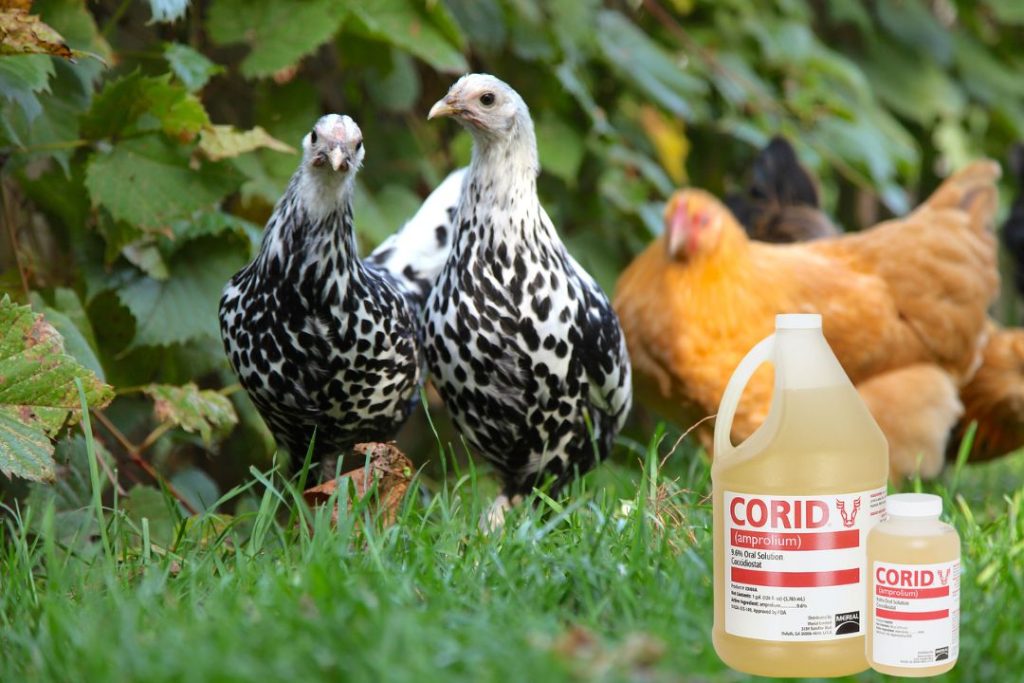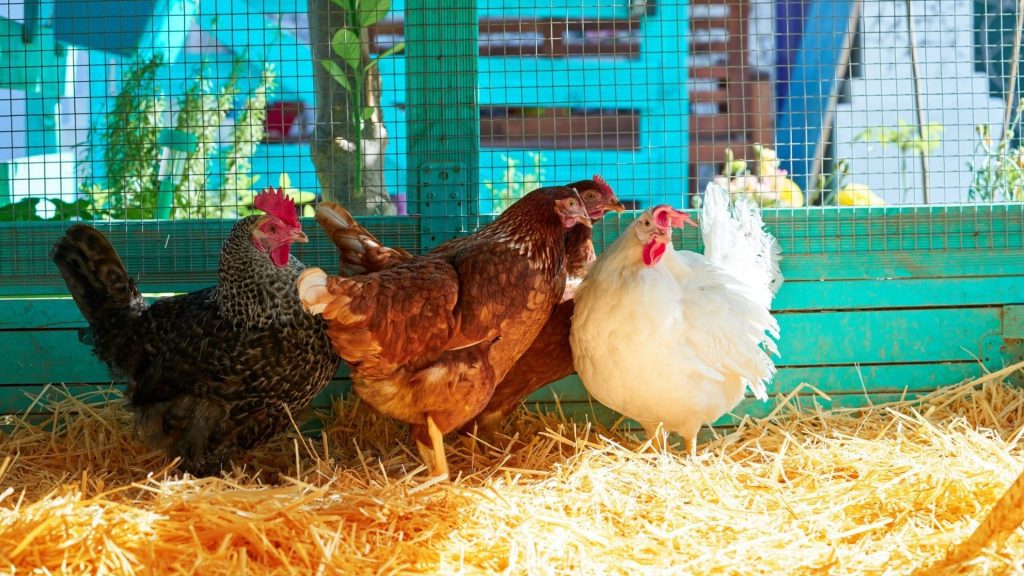As a chicken owner, you should comprehensively understand your flock’s available medical treatments to safeguard their health and well-being. One such treatment is Corid. So you must know, “What does corid treat in chickens“?
It is a medication commonly used in poultry farming. Corid works by inhibiting the growth and reproduction of Coccidia parasites within the intestines of chickens. It disrupts their ability to multiply.
Also, corid reduces their numbers and prevents further damage to the intestinal lining. This mode of action allows your affected birds to recover and regain their overall health.
In this informative article, we will explore what Corid treats in chickens, exploring its medical applications and benefits. So, let’s explore the world of Corid and its significance in maintaining the health of your feathered companions.
What Is Coccidiosis?
Coccidiosis is a parasitic disease. It is caused by the presence of protozoa known as Coccidia. These microscopic organisms can severely impact your chicken’s intestinal tract. Thus it leads to various health issues and even mortality if left untreated.
Coccidiosis is a prevalent concern for poultry farmers worldwide. It can quickly spread within your flock and cause substantial economic losses.
What Does Corid Treat in Chickens?
Corid is a widely used medication that effectively combats coccidiosis in chickens. It works by inhibiting the Coccidia’s growth and reproduction.
It prevents this disease’s progression and relieves your affected birds. Corid greatly reduces the severity of coccidiosis outbreaks within your flock. And it significantly aids in recovering your infected chickens.
How To Treat Clinical Coccidiosis?
You must take action immediately if you exhibit obvious signs of coccidiosis in your chickens. The signs are:
- Diarrhea
- loss of appetite
- weight loss
- Lethargy.
Clinical coccidiosis can have a serious effect on your infected birds. Ultimately it can result in pain, decreased output, and in extreme cases, even death of your chicken. Fortunately, Corid is a crucial therapeutic component for clinical coccidiosis. It provides efficient alleviation and promotes healing.
How To Administer Corid for Clinical Coccidiosis?
To effectively treat clinical coccidiosis in chickens, the following steps should be followed:
Identify Symptoms
Observe the chickens closely for the typical signs of clinical coccidiosis, including diarrhea, weight loss, loss of appetite, and lethargy. Prompt identification of symptoms is crucial for initiating treatment as soon as possible.
Confirm Diagnosis
Even while the apparent signs may strongly suggest coccidiosis, you must get a second opinion from a veterinarian. Or you can conduct additional tests in the lab. It guarantees correct identification and treatment for your chickens.
Isolate Infected Birds
You must isolate the sick birds from your healthy ones if you find clinical coccidiosis in your flock. This action will reduce the likelihood of the disease spreading in your flock.
Prepare Medication
Mix the recommended dosage of Corid with clean drinking water. The dosage depends on factors such as the outbreak’s severity, the chickens’ age and weight, and the specific formulation of Corid being used. Follow the manufacturer or veterinarian’s dosage recommendations.
Administer Medication
- Provide medicated water as the sole source of drinking water for the affected chickens.
- Remove any other water sources to ensure they consume the proper dosage of Corid.
- Make sure the medicated water is easily accessible to the birds, and monitor their water consumption during the treatment period.
Duration of Treatment
Administer Corid as the sole source of drinking water for the recommended duration, usually 5 to 7 consecutive days. This duration allows the medication to effectively combat the parasites and alleviate the symptoms of clinical coccidiosis.
How to Prevent Subclinical Coccidiosis?
Subclinical coccidiosis refers to cases where chickens may not exhibit visible disease symptoms but still carry the coccidia parasites. This form of coccidiosis can significantly impact the overall productivity and well-being of a flock.
You can use Corid to control subclinical coccidiosis outbreaks in your flock preventively. Administer Corid at appropriate intervals to reduce Coccidia in your flock and minimize the risk of disease transmission.
How To Combat Coccidial Drug Resistance?
Over time, certain strains of Coccidia have developed resistance to certain medications commonly used to combat coccidiosis. However, Corid remains an effective option due to its unique mode of action.
Targeting the thiamine metabolism of Coccidia as Corid is less susceptible to resistance development. This makes it a valuable tool in controlling coccidiosis. Particularly it is valuable in cases where other medications may be less effective.
What Is The Corid Dosage Recommendations?
Administering the correct dosage of Corid is vital to ensure its effectiveness in treating coccidiosis. Adhere to the veterinarian or manufacturer’s corid dosage recommendations.
The dosage depends on the epidemic’s severity, the chicken’s age and weight, and the particular Corid formulation.
What Is The Corid Dosage Recommendations?
The following dosage recommendations are commonly used for Corid administration in chickens:
- Treatment Phase: During the treatment phase, a typical dosage for Corid is mixing 1.5 teaspoons (7.5 ml) of Corid liquid solution or 1.5 teaspoons (7.5 grams) of Corid powder with 1 gallon (3.8 liters) of clean drinking water. Provide this medicated water to your chicken as the sole source of drinking water for 5 to 7 consecutive days.
What Are The Best Practices For Corid?
It is important to follow these best practices to maximize the effectiveness of Corid treatment and ensure your flock’s good health and safety:
- Accurate Measurement: Use precise measuring tools, such as calibrated spoons or syringes, to ensure accurate dosage measurement.
- Clean Water Sources: Provide clean drinking water for the chickens, and ensure that the medicated water is the only available source during treatment.
- Regular Monitoring: Observe the chickens closely during and after the treatment phase to monitor their response and check for any adverse effects.
- Veterinary Guidance: Consult a veterinarian for professional advice regarding dosage, administration, and any specific considerations for your flock.
Final Thought
Corid plays a crucial role in treating and preventing coccidiosis in chickens. By understanding its medical applications and following proper dosage recommendations, you can effectively combat this parasitic disease and maintain the health of your flock.
With the right approach and the aid of Corid, you can protect your feathered friends from the detrimental effects of coccidiosis and ensure their overall well-being.



